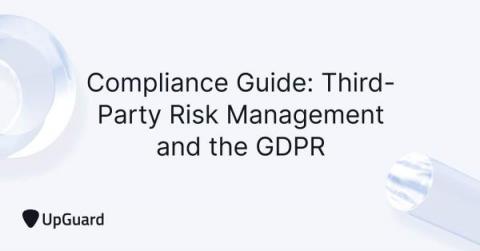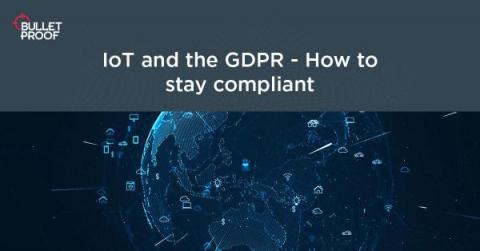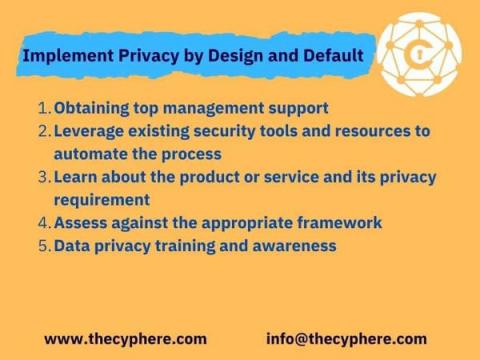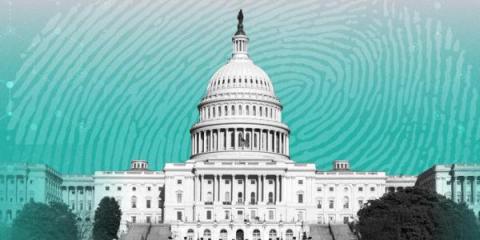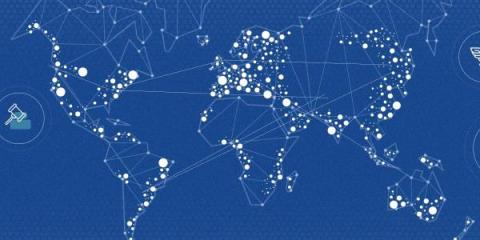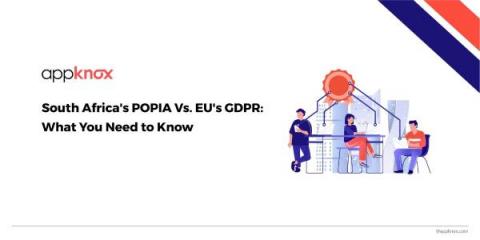Security | Threat Detection | Cyberattacks | DevSecOps | Compliance
Legislation
Compliance Guide: Third-Party Risk Management and the GDPR
The General Data Protection Regulation (GDPR) is one of the world’s most popular regulations. Though the European Union designed the GDPR to protect European citizens, its compliance transcends European borders, impacting most businesses collecting personal data via their websites - because you can’t control whether a European citizen accesses your website. Third-party vendors often require access to sensitive personal data to deliver their services.
IoT and the GDPR - How to stay compliant
Businesses that incorporate Internet of Things (IoT) into their daily operations have rarely, if ever, had access to so many resources to help improve your customer reach, collect more personal data and reduce your internal operational expenses due to IoT automation. IoT devices are ubiquitous, and as technology advances, so does the invention and use of connected devices within workplaces and our homes.
Protegrity Protection GDPR
GDPR privacy by default examples, privacy by design concepts
The General Data Protection Regulation, a GDPR, requires business entities to put appropriate technical and organisational measures in place and implement privacy-compliant procedures and processes. The need to implement the data protection principles is to guard the safety of customers’ default personal data and protect natural persons’ rights. This requirement leads to addressing the guide of data privacy by design and by default.
It's Time for a Federal Data Privacy Law in the U.S.
New state-level data privacy laws just keep coming. By the end of 2023, California will transition to the CPRA, and residents of Virginia, Colorado, Utah, and Connecticut will be covered by more expansive state privacy laws. With 10% of U.S. states covered by data privacy legislation by the end of next year, it’s clear there’s a need for federal legislation as well. I’m pleased to see reports of positive momentum on this topic in Washington.
Automate Data Mapping for GDPR and Other Data Privacy Laws
Whether you’re a compliance expert or a novice, adhering to data privacy laws confuses even the best of companies. One of the key points of confusion is the fact that you can’t possibly comply with current and future laws without knowing what data you collect, where it goes, and how it’s used and retained. It sounds simple, but it is not. In fact, it’s a challenge that applies to nearly every organization today.
South Africa's POPIA vs. EU's GDPR: What You Need to Know
It's been a while; there has been a debate between GDPR and POPIA. Both compliances have made quite a mark since their inception. The South African Protection of Personal Act, also known as POPIA, means to provide South African citizens control over their data. It also makes all organizations processing the personal information in South Africa legally responsible to protect the data.
What is the Infrastructure Investment and Jobs Act (IIJA)?
In November of 2021, President Joe Biden signed the Infrastructure Investment and Jobs Act (IIJA) which authorizes a plan to invest $1.2 trillion into the nation's infrastructure. This bipartisan infrastructure bill plans to bolster the transportation, energy, water, utility sectors, and state and local governments. An important provision within the IIJA is the allocation of $2 billion towards enhancing the cybersecurity of government organizations.
Recent Developments in Data Security Laws in Africa
The pandemic has caused havoc on business and personal lives. It also highlighted the importance of personal data and its vulnerability. To combat this, governments across the globe have reviewed and modulated their privacy laws and regulations. Including the African governments and legislators. Over the recent years, Internet usage has increased significantly on the African continent. The usage was aided by continued investment in local digital infrastructure and improved user access.



